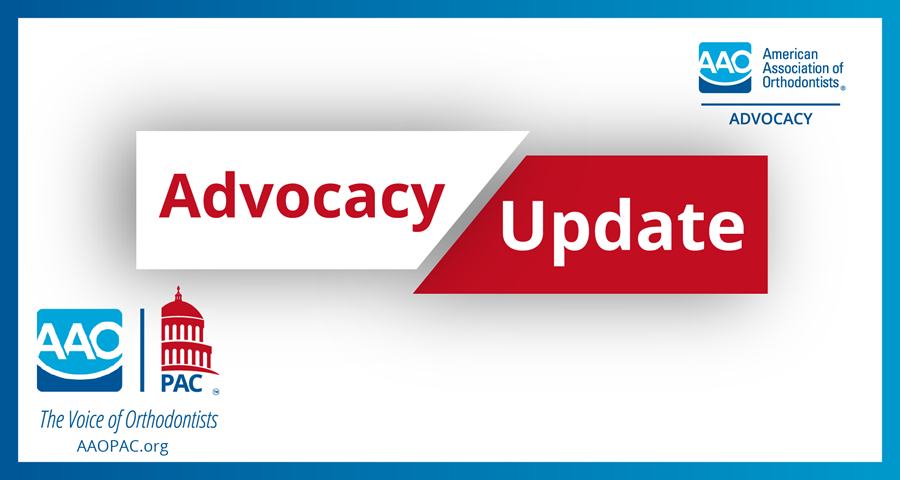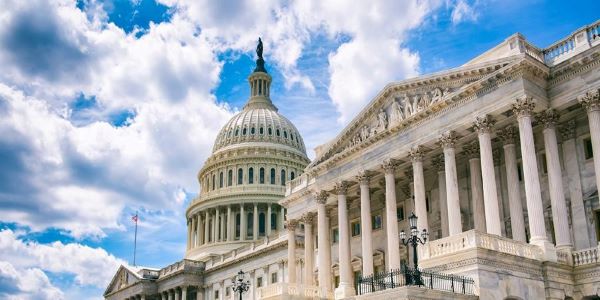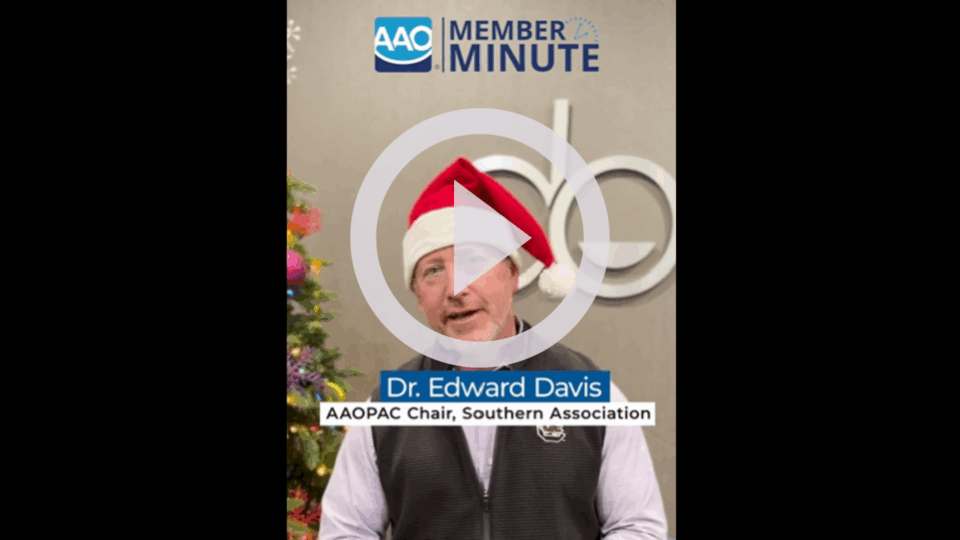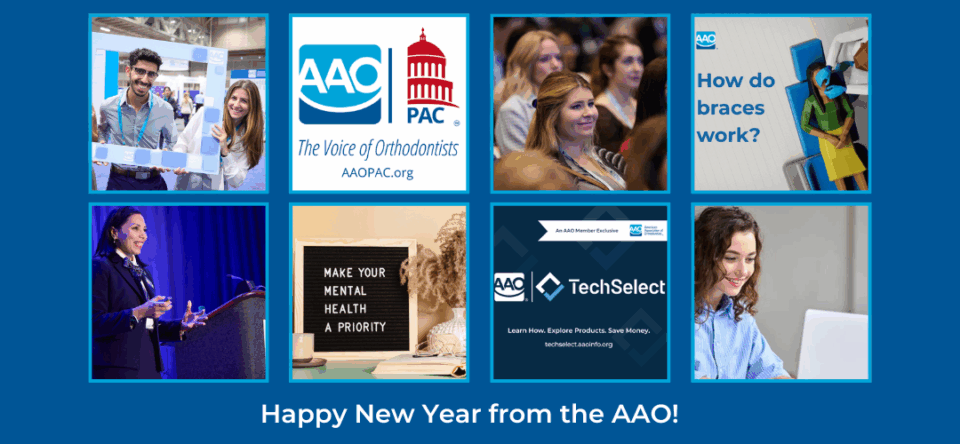Last summer, through important AAO advocacy and grassroots engagement by AAO members, Nevada became the first state to require an in-person visit prior to beginning orthodontic treatment. Additionally, a patient must have access to a provider’s telephone number and other contact information for the doctor supervising their treatment.
During the 2024 legislative session, the AAO has continued to play offense and advocate for similar legislation in several states. Updates for Florida, Georgia, and Illinois appear below.
Florida Teledentistry Efforts Continue:
Legislation Awaiting Governor DeSantis’ Signature;
Orthodontic Patients Named “Winners” In Florida Politics Publication
In Florida, we are now building on the foundation of our first year of work in Florida during the 2023 legislative session, all led by the AAO, in partnership with the Florida Association of Orthodontists (FAO) and Florida Dental Association (FDA).
Senate Bill 302 (SB302) was introduced in in November 2023 for the 2024 session. Its companion bill, House Bill 855 (HB855), was introduced in December 2023, requiring an in-person examination and “a dentist of record to remain primarily responsible for all dental treatments for a patient treated through telehealth.”
Last month, SB302 unanimously passed through three Senate committees with Senator Jim Boyd as our sponsor. Similarly, HB855 unanimously passed through all referred committees, including the Florida House Health and Human Services Committee, before then passing unanimously in the full House.
The House version of the legislation, HB855, was then sent to the full Senate floor, where it passed unanimously on March 5.
It can normally take years to see legislation like this passed in Florida. Thanks to strong grassroots leadership from the FAO and the Florida National Advocacy Network team, we are positively advancing this important patient health and safety legislation through the process to protect Floridians from the harms and risks that can come from mail-order orthodontic treatment models.
With Florida’s legislative session over, the legislature eventually sends all bills passed by both the House and Senate Chambers to Florida Governor Ron DeSantis for consideration. In Florida, the Governor can sign the bill into law, allow it to become law without his signature, or veto the bill. The effective date for this legislation is July 1, 2024, so the bill could be sent to the Governor as late as June for his action. We remain active with our advocacy and grassroots efforts in Florida to see HB855 become law.
Florida Politics, the most-read Florida political source online, recognized HB855 in its annual “Winners and Losers” emerging from the 2024 legislative session. The article named Orthodontic Patients as winners this legislative session:
“Orthodontic patients — In a win for patient health and safety, advancements were made to bring accountability to direct-to-consumer orthodontics to protect Floridians from potentially harmful and irreparable damage. Sen. Boyd and Rep. McClure championed policies passed in HB 855, which was supported by advocates from the American Association of Orthodontists and the Florida Association of Orthodontists. The bill would require a dentist of record to remain primarily responsible for all dental treatments for a patient treated through telehealth, require advertisements of dental services provided through telehealth to include a specified disclaimer for certain dental services, and require an in-person examination and review of X-rays from the last 12 months before the movement of teeth.”
Georgia Teledentistry Bill Includes AAO Supported Language;
Awaits Governor Brian Kemp’s Signature
Georgia HB 441, which would authorize and regulate teledentistry by licensed dentists pursuant to permits issued by Georgia Board of Dentistry, passed through the Georgia House on February 29. From there, HB 441 quickly moved through the Georgia senate committee process before ultimately it passed the Senate unanimously on March 18.
The bill is now being sent to Georgia Governor Brian Kemp. He has three options in the six consecutive days after March 18: Sign the bill, veto it, or allow it to become law without his signature.
Like other AAO model legislation in other states, HB 441 requires an in-person exam prior to receiving care via teledentistry. It also indicates that insurance cannot require teledentistry in-lieu of in-person care. The bill includes AAO-supported language.
Thanks to the Georgia Dental Association for collaborating with the AAO over the past two years to consider language changes (this bill was introduced last year and carried over to 2024 in Georgia’s two-year session). We appreciate their partnership and advocacy on the ground in Atlanta to help amend and pass the bill with important AAO patient health and safety language included. We are also grateful for key leaders in the Georgia Association of Orthodontists for their important work and advocacy on this legislation.
Positive Forward Movement for AAO-Supported Teledentistry Bill in Illinois
Last year, Illinois advocates worked hard on SB 1509, a bill related to teledentistry and patient health and safety. The AAO worked with our Illinois lobbyists supported through the AAO Component Legal Support Fund, the Illinois Society of Orthodontists (ISO), and the Illinois State Dental Society (ISDS).
During last year’s legislative session, the AAO Advocacy team worked to add increased patient protection in Illinois, to require an in-person exam and a review of patient records prior to treatment. The bill carried over to 2024 because Illinois has a two-year state legislative cycle.
This legislation, now Senate Bill 2586, is moving forward in this year’s session after having passed favorably last week in the Senate Licensed Activities Committee. The bill has until April 12 to pass the full Senate before being considered on the Illinois House side.
Going Forward: AAO Efforts and Your Support Will Be Key
In coming months, AAO Advocacy team members, the award-winning National Advocacy Network (NAN), and other volunteer leader advocates will continue to work with component and constituent organization leaders on AAO policy priorities – teledentistry and beyond. Together, we will help grow the AAO brand with lawmakers and their staffs, while also ensuring that the orthodontic specialty has a seat at the table to help shape and influence policy moving through the legislative process in state sessions across the country.
As we continue advocacy work in the states, please help support AAO Advocacy priorities by making your gift celebrating the 30th Anniversary of AAOPAC in 2024. It only takes a few minutes to complete your contribution now at AAOPAC.org, using your e-mail address associated with your AAO membership.
AAOPAC is helping to fuel our advocacy success not only in Washington, D.C. but in states throughout the country as well. Our AAOPAC Pillars of Giving are working and the AAO’s advocacy influence continues to grow through AAO member grassroots engagement. Your grassroots voice and AAOPAC support make all the difference!



